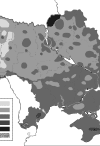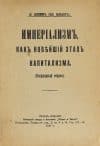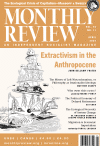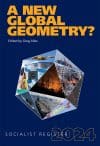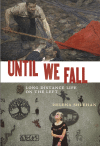Most westerners glimpsed the breakup of the Soviet Union at a great distance, through a highly distorted lens which equated the expansion of capitalism with the rise of global democracy. But there were those, like Helena Sheehan, who watched more keenly and saw a world turning upside down. In her new autobiographical history from below, Until We Fall, Sheehan shares what she witnessed first-hand and close-up, as hopes were raised by glasnost and perestroika, only to be swept away in the bitter and brutal counterrevolutions that followed.
In Until We
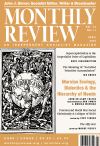
“There is no longer any question that the United States is waging a New Cold War,” MR editors write in this month’s “Notes from the Editors.” This war, waged not only against Russia, but increasingly against China, whose approach to global governance is seen as a threat to U.S. imperialism. | more…
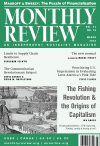
March’s “Notes from the Editors” revisits the Non-Aligned Movement and its growing role in the New Cold War. The rise of Russia, China, BRICS, and other nonaligned countries hearlds the emergence of a new, multipolar world, counteracting the global hegemony of the United States. | more…
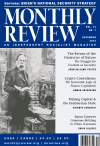
This month’s “Notes from the Editors” takes on the Biden Administration’s recently released National Security Strategy, a bellicose document that rattles sabers towards the supposed autocracies of Russia and China while reviving the age-old lie of the United States as protector of democracy. | more…
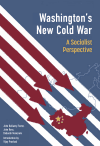
As the American people delude themselves once more into thinking of the United States as a liberating force for peace in the world, Waging a New Cold War invites us, instead, to think for ourselves. Behind the scenes the plans to wage war have been laid—either by proxy, as in Ukraine, or directly, against the U.S.’s old twentieth-century foes. Waging a New Cold War: A Socialist Perspective makes a strong case that, as the official story is laid out by government propagandists, and as the mainstream media provides cover, the aim of this latest set of American military escapades remains the same as ever: Maintenance of U.S hegemony in the global financial system. Foregrounded with an introduction by Vijay Prashad, this cogent collaboration puts forth three essays that illustrate clearly that, while the Cold War against the Soviet Union ended, the “cold war” against the “enemies” of the United States did not. Furthermore, its authors lay out evidence that the U.S. establishment has been willing to risk nuclear winter—in other words, mutual annihilation—to hold onto economic primacy. And they show that, while Russia and China can each be criticized, justifiably, for their violations of human life and dignity, neither, on its own, threatens the eruption of a Third World War and the end of the human race as we know it. Just in time, we have in our hands an intelligent text that strengthens our struggle against the cynical machinations of the American military behemoth and its propaganda machine. | more…

In this reprint of the February 1994 “Notes from the Editors,” former MR editors Harry Magdoff and Paul M. Sweezy ask: “The United States could not have won a more decisive victory in the Cold War. Why, then, does it continue to act as though the Cold War is still on?” | more…

In the past and in his own time, Marx has been portrayed as endorsing the enclosure of the commons as a necessary historical stage on the path to socialism. However, a more accurate account, one that is critical of the enclosure movement, can be found in his response to the destruction of commons-based peasant communities in Russia—while it was actually happening. | more…

Recent scholarship suggests that the widespread perception of Soviet states as uniquely ecologically disastrous is, at best, exaggerated, and that these environmental legacies must be re-examined. | more…
